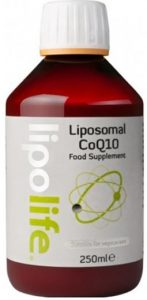Like it or not, we all age. Indeed, one of the burdens of ageing is that, due in part to the physical and chemical changes that occur in our bodies, our memory-making and memory-recall usually slow down.
Yet, generally speaking, however old you are and whatever your health, there are things you can do to support your memory – or, more specifically, to support the parts of your brain that concern themselves with creating, storing and recalling memory. So, it’s never too late to try, then – but just what should you try…?
A good night’s sleep
Thanks to sleeping, the brain consolidates and stores the memories of that day and recent days. Without good sleep over a consistent, prolonged period, memory issues and perhaps even more serious brain problems can result.
In fact, research suggests that just one good night’s sleep – or even a nap – makes a difference when it comes to improving memory-recall of information and details. So, trying to achieve a seven-to-nine-hour, nightly sleep is highly recommended, as is keeping to a general sleep schedule and limiting caffeine drinks, as the day progresses.
Get your diet right
What’s a particularly healthy diet for preserving memory? Well, foods that are rich in antioxidants ought to do the trick; that means, in general terms, brightly and boldly coloured fruits and vegetables. Bear in mind that good nutrition (ideally here, a Mediterranean-style plant-centric diet, featuring whole grains and omega-3 fatty acid-packed olive oil) is great for enhancing brain cells, in order to support brain function and boosting cognitive abilities and memory formation and recall.
Eating plenty of fruit and veg has been identified as lowering the risk of memory loss and maybe even of dementia, while a diet focused around lots of saturated fats and refined carbohydrates is liable to lead to shrinkage of the brain’s area where short-term memories are stored.
Try to de-stress
Modern life is stressful, we all know that; yet getting pulled this way and that in life does your ability to form and retain memories no good. Regular production and use of stress hormones by your body damages the brain’s cells and, specifically, the part of that organ where memories are created, the hippocampus. And that’s to say nothing of what the stress hormone cortisol can do to your working memory.
So, try to achieve that work-life balance; even if it proves elusive you can but try for your memory’s – and your memories’ – sake. In addition to having fun and rest when you can, you might give meditating a go.
Lower your cholesterol and get exercise
Cholesterol is often bad news in the body, as you’re probably well aware; yet, did you know the presence of this natural fat in your blood and cells is actual important for brain health? There is a caveat here, though – too much ‘bad’ (LDL) cholesterol can harm the forming and retention of memory, thanks to its clogging up arteries and blood vessels, therefore, restricting blood flow to and in the brain. Indeed, studies have shown high cholesterol might be linked to mild cognitive impairment and age-related memory loss.
Often, advice to reduce your cholesterol is accompanied by advice to exercise – and it’s no different here. And that’s because good, regular exercise encourages the brain to release specific chemicals (‘growth factors’) that support its cells, as well as stimulating the growth of new brain cells and connecting them with each another.
And exercise your brain muscles, too
It’s a good idea to think of your memory as a muscle – as people age, they’re often advised to ‘exercise’ their mind. And that’s because performing mental tasks that require you to store and recall details in your bonce serves only to strengthen memory. It’s even believed that ‘engaging your brain’ can boost the volume of cells in the memory-centred hippocampus. Either way, research suggests that doing just a quarter-of-an-hour of brain-training, four or more days a week, improves short-term memory and problem-solving skills.
Memory health supplements
Finally, in addition to an improved diet and sleep, lowering cholesterol levels and exercising your mind and body, you can also turn to recommended, naturally-derived supplements to help your memory as you get older. At The Finchley Clinic, we’ve several different memory-aiding supplements in stock – here are three excellent examples:
Liposomal Carnosine (250ml) – a particularly powerful antioxidant that may help combat memory concerns among ageing people
B12 Tri-blend (2oz) – a great source of the crucial Vitamin B12, which may support a healthy sleep-wake cycle; research suggests B12 deficiency could lead to brain shrinkage and there is a possibility, too, it might be linked to Alzheimer’s disease
Brain Nutrients (180 capsules) – a blend of key vitamins, phospholipids and amino acids to optimise brain function, concentration, memory and learning.

